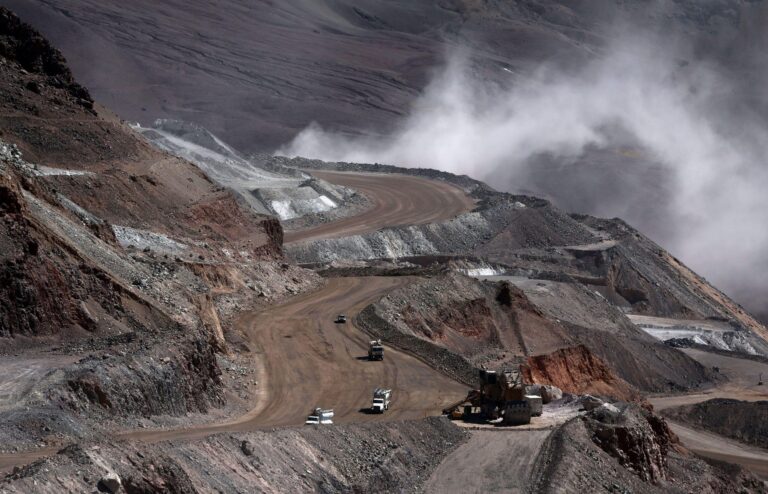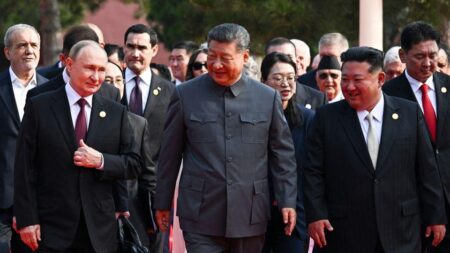Argentina’s mining sector faces a cautious pause as the nation approaches its crucial midterm elections, industry sources reveal. Investment activities have slowed amid political uncertainty, with stakeholders adopting a wait-and-see approach ahead of potential policy shifts. As mining plays a pivotal role in Argentina’s economy, the electoral outcome could significantly influence the sector’s future growth and regulatory landscape. This development raises questions about the short-term trajectory of mining investments in one of South America’s key mineral producers.
Argentina Mining Investment Stalls Amid Political Uncertainty Ahead of Midterm Elections
Investment in Argentina’s mining sector has hit a temporary standstill as investors adopt a cautious stance ahead of the country’s upcoming midterm elections. The political landscape remains uncertain, with market participants weighing potential policy shifts that could impact regulatory frameworks and fiscal incentives for mining projects. Several planned explorations and expansions, particularly in lithium and copper, are currently postponed as corporations await clearer signals from the government.
Key factors contributing to the investment slowdown include:
- Potential changes in mining tax regimes
- Uncertainty over environmental regulations
- Fluctuations in currency and inflation impacting operational costs
- Investor hesitation over political stability and governance direction
| Mineral | Pre-Election Investment Status | Projected Post-Election Outlook |
|---|---|---|
| Lithium | Expansion on hold | Renewed interest if policies stabilize |
| Copper | Delayed exploration | Potential growth with regulatory clarity |
| Gold | Moderate activity | Continued steady investment |
Economic Implications of Delayed Mining Projects on Argentina’s Resource Sector
Argentina’s prolonged postponement of mining projects is exerting tangible pressure on the resource sector, stifling much-needed capital inflows and curbing job creation. Investors, wary of the political uncertainty surrounding the midterm elections, are holding back, resulting in stalled infrastructure development and delayed extraction activities. This pause exacerbates the country’s challenge to compete globally, especially against neighboring countries that are aggressively courting mining investments with clearer regulatory environments and incentives.
Moreover, the ripple effects span beyond immediate project delays.
Key economic detriments include:
- Reduced export revenues from mineral commodities, limiting foreign currency inflows.
- Lower fiscal receipts from mining royalties and corporate taxes, impacting government budgets.
- Inhibited technological transfer and modernization within the mining sector.
- Increased unemployment rates in regions dependent on mining operations.
These factors contribute to a constrained growth trajectory for Argentina’s resource-dependent regions, dampening long-term economic resilience.
| Economic Indicator | Impact of Delayed Projects | ||||||||||||||
|---|---|---|---|---|---|---|---|---|---|---|---|---|---|---|---|
| GDP Contribution | Declined by 2.5% in affected regions | ||||||||||||||
| Foreign Direct Investment | Dropped 15% year-over-year | ||||||||||||||
| Unemployment Rate | Increased by 1.8 percentage points |
| Economic Indicator | Impact of Delayed Projects | ||||||||||||||
|---|---|---|---|---|---|---|---|---|---|---|---|---|---|---|---|
| GDP Contribution | Declined by 2.5% in affected regions | ||||||||||||||
| Foreign Direct Investment | Dropped 15% year-over-year | ||||||||||||||
| Unemployment Rate | Strategic Recommendations for Investors Navigating Argentina’s Election-Driven Market Pause
As Argentina’s midterm elections introduce significant uncertainty into the mining sector, investors should prioritize resilience and adaptability in their portfolios. Diversification across geographies and commodities can mitigate exposure to political risks inherent in the Argentine market. Monitoring political developments closely and engaging local experts will provide critical insights enabling timely decision-making. Additionally, considering joint ventures with established domestic players can help navigate evolving regulatory landscapes and maintain operational continuity. Capital allocation strategies should emphasize liquidity and flexibility, allowing investors to respond swiftly once the electoral outcome clarifies market direction. Understanding fiscal reforms and potential shifts in export taxes is vital, as these factors will directly impact profitability. The table below offers a quick comparative overview of key risk factors before and after the elections, helping investors frame their strategic approach effectively.
|




